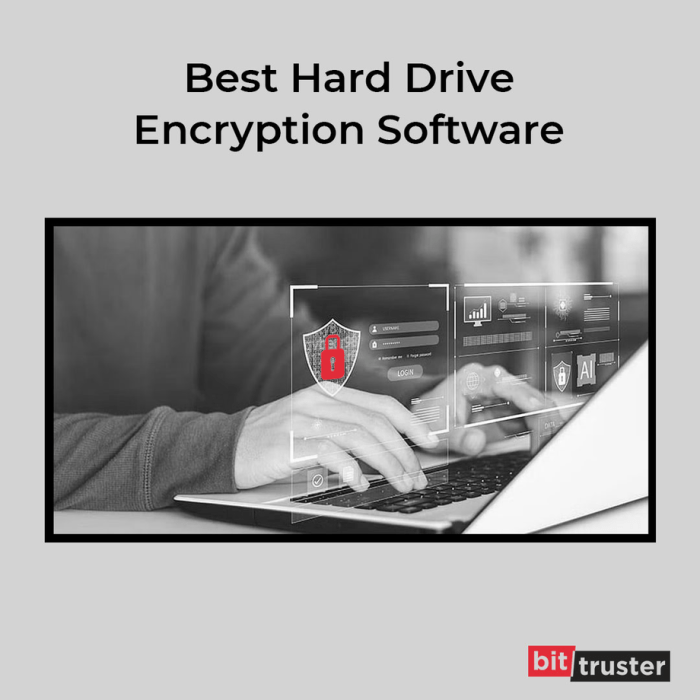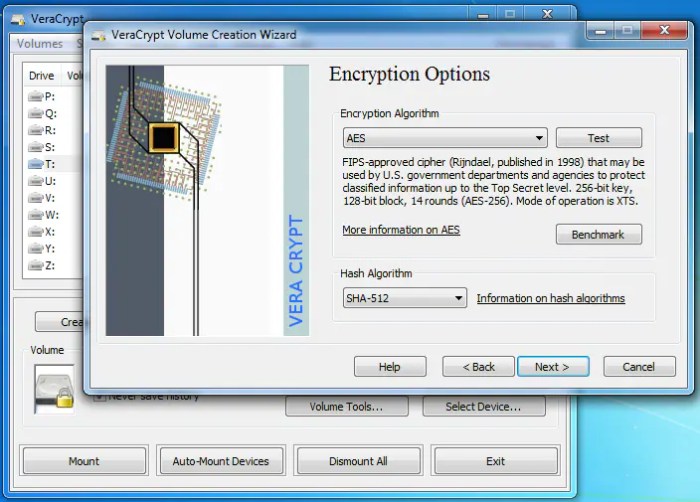In today’s digitally connected world, protecting sensitive data is paramount. Hard drive encryption software provides a crucial layer of security, safeguarding your personal files, financial information, and confidential business documents from unauthorized access. This comprehensive guide delves into the intricacies of hard drive encryption, exploring various software options, their functionalities, and crucial considerations for effective data protection.
Understanding Hard Drive Encryption
Hard drive encryption, also known as disk encryption, is a process that transforms your readable data into an unreadable format, often referred to as ciphertext. This transformation is achieved using sophisticated encryption algorithms and a unique encryption key. Only individuals possessing the correct key can decrypt the data and access its original form. This robust security measure protects your data even if your hard drive is stolen or lost.
Types of Hard Drive Encryption
- Full Disk Encryption (FDE): This encrypts the entire hard drive, including the operating system, applications, and user data. Examples include BitLocker (Windows), FileVault (macOS), and VeraCrypt.
- File-Level Encryption: This encrypts individual files or folders, offering granular control over which data is protected. Popular options include 7-Zip with AES-256 encryption and various cloud storage services with built-in encryption.
- Self-Encrypting Drives (SEDs): These hard drives have built-in encryption hardware, providing a hardware-level security solution. This offers a higher level of security as the encryption process is handled directly by the drive itself, independent of the operating system.
Choosing the Right Hard Drive Encryption Software
Selecting the appropriate hard drive encryption software depends on several factors, including your operating system, security requirements, and technical expertise. Consider the following aspects:

Source: justpaste.it
Key Features to Look For:, Hard drive encryption software
- Strong Encryption Algorithms: Look for software employing robust algorithms like AES-256, which is widely considered industry-standard and virtually uncrackable without the key.
- Ease of Use: While security is paramount, the software should be user-friendly and intuitive, even for non-technical users. A simple interface and clear instructions are crucial.
- Operating System Compatibility: Ensure compatibility with your operating system (Windows, macOS, Linux). Some software supports multiple platforms, offering flexibility.
- Key Management: A secure key management system is vital. Consider software offering options like password protection, key files, or hardware security modules (HSMs) for enhanced security.
- Performance Impact: Encryption can impact system performance. Choose software that minimizes this impact, especially if you’re using a less powerful machine.
- Open Source vs. Proprietary: Open-source software allows community scrutiny, potentially increasing trust and security. Proprietary software often offers more comprehensive support.
Popular Hard Drive Encryption Software Options
Several reputable software options cater to different needs and preferences:
- BitLocker (Windows): Built-in Windows encryption for full disk encryption. Offers strong security and integration with the operating system.
- FileVault (macOS): Apple’s built-in full disk encryption solution for macOS, providing robust security and seamless integration.
- VeraCrypt: Open-source, cross-platform software offering both full disk and file-level encryption. Known for its strong security and flexibility.
- LUKS (Linux Unified Key Setup): A standard for disk encryption on Linux systems, offering flexibility and strong security.
- 7-Zip (with AES-256): A popular file archiver that supports AES-256 encryption for individual files and folders.
Best Practices for Hard Drive Encryption
Effective hard drive encryption goes beyond simply installing software. Follow these best practices to maximize security:
- Choose a Strong Password: Use a long, complex password that combines uppercase and lowercase letters, numbers, and symbols. Avoid easily guessable passwords.
- Regularly Update Software: Keep your encryption software and operating system up-to-date to patch security vulnerabilities.
- Backup Your Encryption Key: Store your encryption key securely, but separately from your encrypted drive. Consider using a password manager or a secure offline storage method.
- Enable Automatic Encryption: If your software allows it, enable automatic encryption to ensure your data is always protected.
- Consider Hardware-Based Security: For the highest level of security, consider using Self-Encrypting Drives (SEDs).
Frequently Asked Questions (FAQ)
- Q: Is hard drive encryption slow? A: The performance impact varies depending on the encryption software and hardware. Modern encryption algorithms and hardware acceleration minimize the performance overhead.
- Q: What happens if I lose my encryption key? A: Losing your encryption key means you’ll lose access to your encrypted data. There’s no way to recover it without the key. Therefore, secure key management is crucial.
- Q: Is hard drive encryption enough to protect my data? A: Hard drive encryption is a vital layer of security, but it’s not the only measure you should take. Combine it with strong passwords, regular backups, and other security practices for comprehensive protection.
- Q: Can I encrypt a USB drive? A: Yes, many encryption software options support encrypting external drives, including USB drives. This is highly recommended for sensitive data stored on portable devices.
- Q: What is the difference between AES-256 and other encryption algorithms? A: AES-256 (Advanced Encryption Standard with 256-bit key) is currently considered one of the most secure and widely used encryption algorithms. It offers a very high level of security against brute-force attacks.
Conclusion
Hard drive encryption is an essential tool for protecting sensitive data in today’s digital landscape. By understanding the different types of encryption, choosing appropriate software, and following best practices, you can significantly enhance the security of your personal and business information. Investing time and effort in implementing robust hard drive encryption is a crucial step in safeguarding your valuable data.
References
Call to Action
Protect your valuable data today! Choose a reliable hard drive encryption software and implement the best practices Artikeld in this guide to ensure your information remains safe and secure.
FAQ
What are the different types of hard drive encryption?
Common types include full disk encryption (FDE), which encrypts the entire drive, and file-level encryption, which protects individual files or folders. Hardware-based encryption utilizes dedicated chips for faster performance.
How does hard drive encryption impact performance?

Source: wondershare.com
Encryption can slightly decrease performance, but modern encryption methods and hardware acceleration minimize this impact significantly. The extent of performance reduction varies depending on the encryption method and system resources.
Is it possible to recover data if I forget my encryption password?
Data recovery is extremely difficult, if not impossible, without the correct password. Choose a strong password and consider storing it securely (but separately from the encrypted data) or using a password manager.
What are the best practices for choosing hard drive encryption software?
Look for reputable software with strong encryption algorithms, user-friendly interfaces, and regular security updates. Consider factors such as compatibility with your operating system and hardware.
